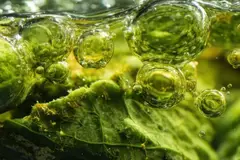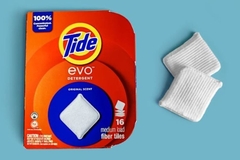Upcycled biosurfactants poised for European mainstream in AmphiStar and Caldic deal
Key takeaways
- AmphiStar partners with Caldic to distribute upcycled biosurfactants across Europe.
- Compared to conventional surfactants, the ingredients cut CO2 emissions fourfold and environmental impact by half.
- Agri-food waste use avoids land occupation and deforestation linked to natural ingredients like palm oil.

Biotech company AmphiStar has entered into an exclusive distribution partnership with Caldic to expand access to its upcycled biosurfactants across Europe. The collaboration aims to support formulators’ demand for sustainable, upcycled ingredients ahead of the EU’s proposed European Green Deal and Biotech Act.
If adopted in its current form, the act could prohibit the use of high-impact, fossil- and palm-based feedstocks and restrict non-circular chemicals and cosmetics practices.
“Together with Caldic, we’re taking upcycled biosurfactants from promising to practical for beauty and personal care,” Sophie Roelants, COO at AmphiStar, tells Personal Care Insights.
“Our ingredients deliver the mildness and performance formulators expect, now with a circular supply of locally-sourced side-streams and verified improvements in environmental footprint.”
Roelants explains that because the ingredients are fully made from upcycled bio-based waste and feedstock side streams, they offer a fourfold decrease in CO2 equivalent emissions compared to biosurfactants based on virgin feedstocks.
She also adds that AmphiStar’s biosurfactants offer at least 50% lower overall environmental impact than non-upcycled and traditional surfactants. These figures are based on recent life cycle analysis.
“With Caldic’s application labs and reach, brands can scale future-proof formulations across Europe without compromising on performance, feel, and sustainability.”
Caldic has a large European customer base, which will help AmphiStar accelerate the adoption of its biosurfactants across the continent. The company hopes to make the ingredients “mainstream.”
“Caldic’s networks and expertise in creating tailored solutions for personal care customers in Europe will enable us to penetrate the European market faster and help more customers transition to sustainable solutions,” says Pierre-Franck Valentin, CEO of AmphiStar.
.webp) The ingredients offer a fourfold decrease in CO2 equivalent emissions compared to biosurfactants based on virgin feedstocks.Bypassing ecosystem pressure
The ingredients offer a fourfold decrease in CO2 equivalent emissions compared to biosurfactants based on virgin feedstocks.Bypassing ecosystem pressure
AmphiStar’s upcycled bio-based surfactants are made from repurposed agri-food waste and side-streams. The waste is then fermented using a mild microbial fermentation process.
The company stresses that it does not use fossil or palm-derived ingredients and is not associated with direct land use.
Personal Care Insights previously covered how avoiding direct land use is critical, as cultivating natural cosmetic ingredients often demands huge amounts of land and water, and drives deforestation.
Around 300 football fields of forest are cleared every hour to make way for palm oil plantations, for example. This releases vast amounts of carbon emissions and destroys habitats.
By sourcing from waste streams instead of farmland, AmphiStar bypasses this pressure on ecosystems and food supplies, addressing one of the biggest sustainability pitfalls of “natural” ingredients.
Earlier this year, AmphiStar also partnered with Kensing to upscale biosurfactants for cosmetics in North America.













